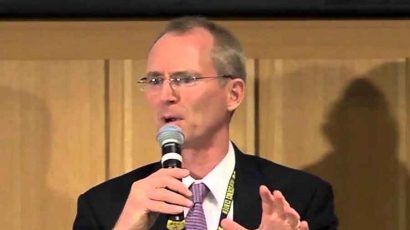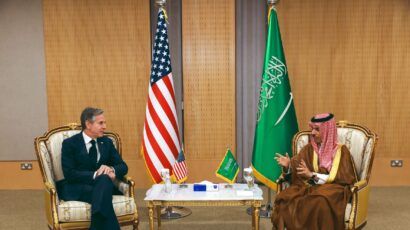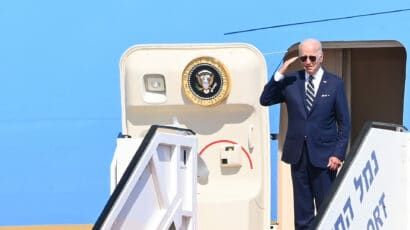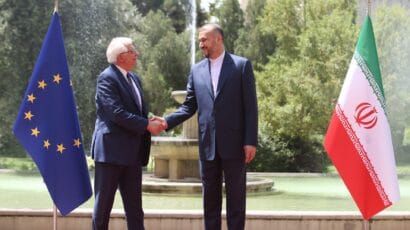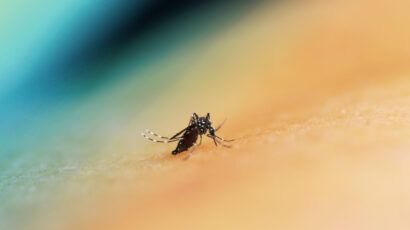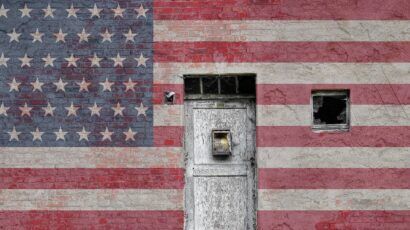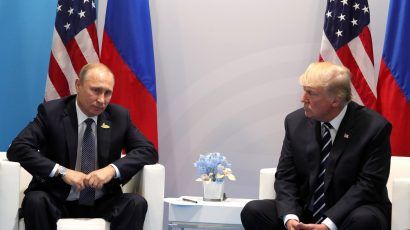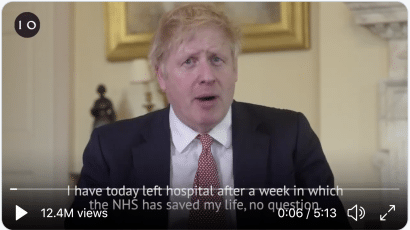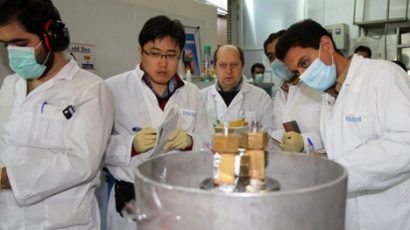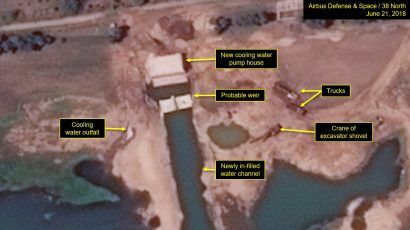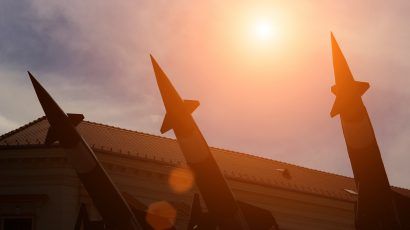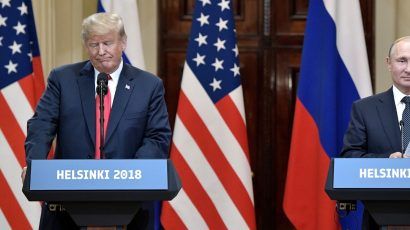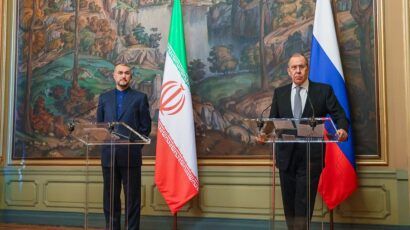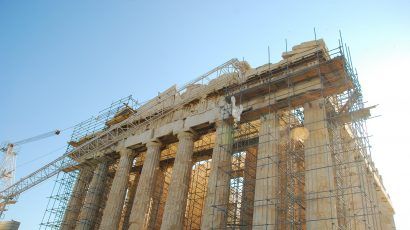Search results for trump
Best of climate change coverage 2019—and a challenge
What do SUVs, Greta Thunberg, windmills, a smartphone app, the Titanic, Plan B, and the 97 percent all have in common?
Climate change is a crisis. But should President Biden declare a national emergency?
While awfully tempting, invoking the National Emergencies Act for the purpose of climate action could do more harm than good. And it would essentially be an attempt to make an end-run around Congress, further weakening the rules and norms of our democracy.
The coming US-Saudi nuclear deal: Keep it honest
Unless Congress puts some checks and balances on Saudi uranium enrichment, it could create not one but many nuclear weapons-ready states.
Less threats, more focus: What Biden needs to do to win an Iran nuclear deal
Three policy recommendations to advance talks on the nuclear deal and ensure Iran never acquires a nuclear weapon.
Will the EU diplomacy revive the Iran nuclear deal or keep spinning in a vacuum?
Since the United States withdrew from the joint agreement to halt Iran's nuclear program, the European Union has been leading a diplomatic effort to revive the deal. Will it be successful or forever spinning in a vacuum?
A more common enemy: How climate change spreads diseases and makes them more dangerous
As the planet warms and disease-carrying animals like mosquitos follow their ideal temperatures northward and into higher altitudes, they may bring diseases such as West Nile virus to areas where they weren’t much of a threat in the past. In some cases, the pathogens themselves may also be adapting to climate change: They're becoming more dangerous to people.
Constitutional mistakes of the past can tyrannize the present—but we can fix them
The United States lacks an electoral court to protect the integrity of the electoral process—in fact, our electoral system is organized in such a way that it invites attacks on its integrity. These problems in design can be traced back to the US Constitution, which suffers from certain defects that leave the United States vulnerable to democratic back-sliding.
New START: A timeline of inaction and disingenuous proposals
On entering office, Joe Biden will have just 16 days to save the only treaty limiting US and Russian nuclear arsenals. How did we get here?
A jet ski vacation during the coronavirus lockdown? Online liars want to make you mad at politicians
Politicians will likely continue to be the target of COVID-19-related misinformation, victims of the so-called information pandemic, or infodemic, that has spread as far and wide as the coronavirus itself and shows no signs of abating any time soon.
US-Iran: avoiding military confrontation
US-Iran: avoiding military confrontation As the crunch of the Trump administration’s maximum pressure campaign is being acutely felt by the regime in Iran, the Iranians have been lashing out in recent months—in the Persian Gulf and regarding their nuclear commitments according to the Joint Comprehensive Plan of Action (JCPOA). The actions of the regime have … Continued
Iran nuclear crisis II
The harder Iran is pushed, the more tempting it will be for the country’s leaders to play the nuclear card.
North Korea is not denuclearizing. Yet.
US Secretary of State Mike Pompeo will visit Pyongyang later this week to “continue consultations and implement the forward progress made by President Trump and Chairman Kim” at their June 12 meeting in Singapore. For now, though, North Korea is not making any unilateral moves to dismantle its nuclear arsenal. On June 27, the Wall Street … Continued
The nuclear threat in 2017
It was a year stained by the epithets “little rocket man” and “dotard” and full of all-too-many nuclear threats
Dealing with Putin’s grand strategy: The impossibility of “bromance”
Nuclear modernization could be an important litmus test of the anticipated thaw in relations between the United States and Russia.
El presidente Xi desiste de prohibir la bomba
El 27 de octubre China se enfrentó con otra prueba más de su voluntad de liderar el desarme nuclear: El Primer Comité de la Asamblea General de la ONU votó una resolución llamando a las negociaciones para un tratado que prohíba las armas nucleares. China se abstuvo. Solo unos días después de la votación, en … Continued
Why climate change isn’t a campaign centerpiece
Trump's antics at the debate (and to some extent, Clinton's) have taken so much space that it's hard to bring in issues of substance, such as climate change and fossil fuels. Chris Mooney of the Washington Post says "It’s becoming more and more clear what role climate and energy issues are going to play in … Continued
The West has a 15-month opportunity for a new nuclear deal with Iran that precludes an Iranian Bomb
According to Resolution 2231, the UN Security Council will close Iran's nuclear case by October 2025. The United States and the EU therefore have a 15-month window to choose between two options: Iran as a nuclear-armed state like North Korea, or Iran as a nuclear threshold state ala Japan.
What science and democracy have in common: us, hopefully
Science, like democracy, is a social process that relies upon a shared commitment to underlying principles. And like democracy, it collapses if enough of the participants decide they don’t want to play by the rules any more.
